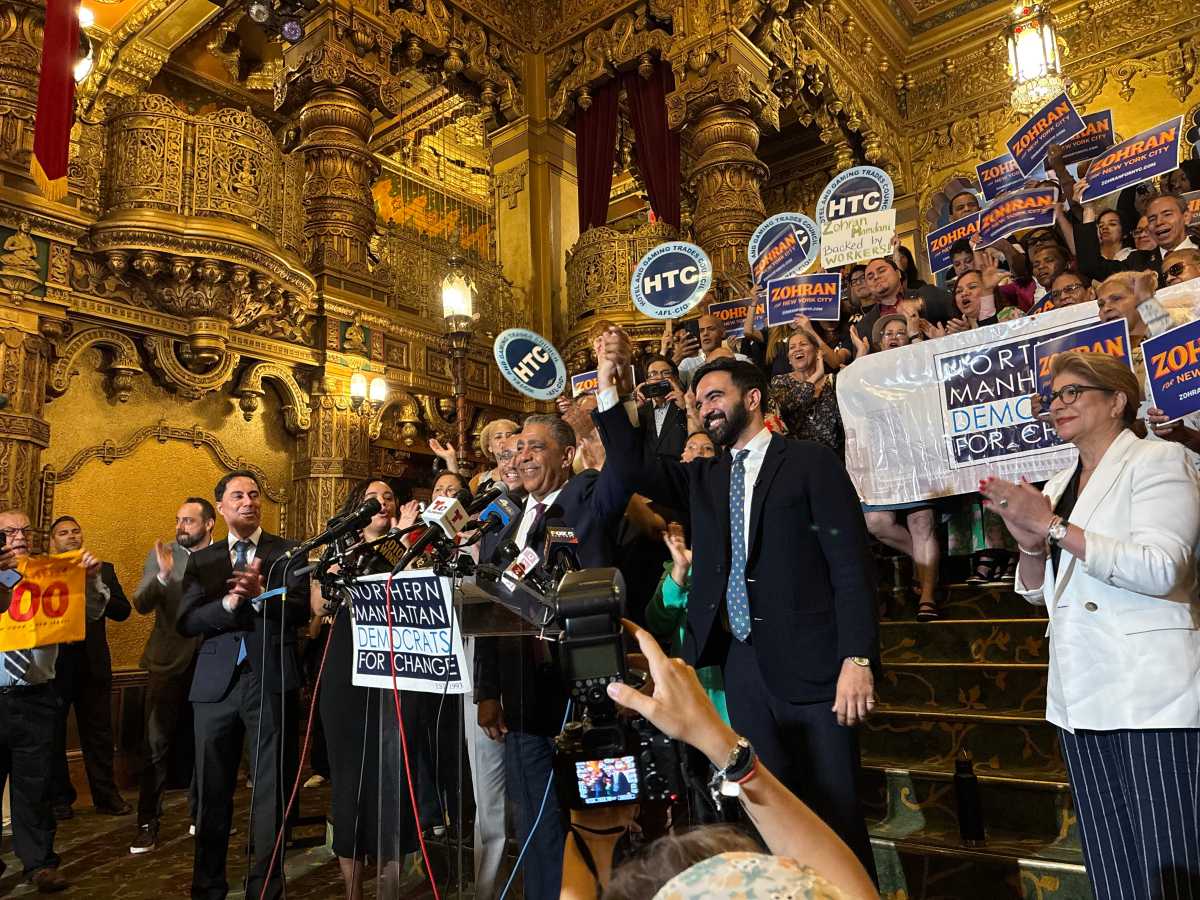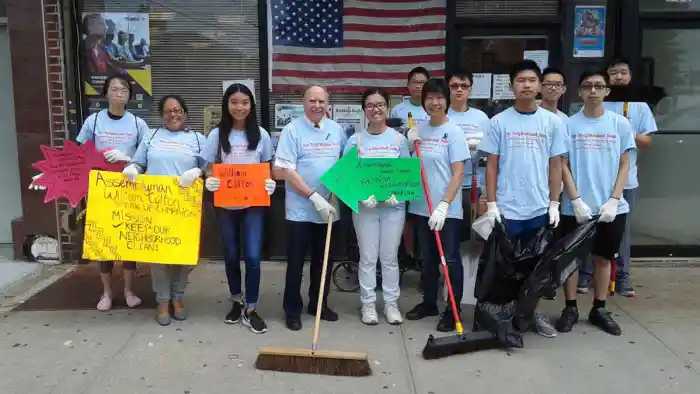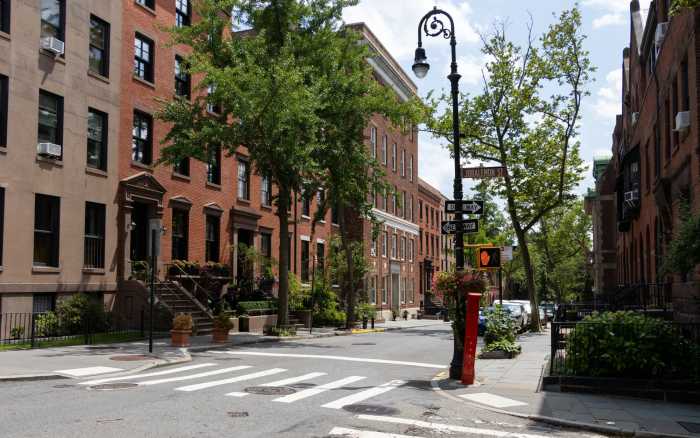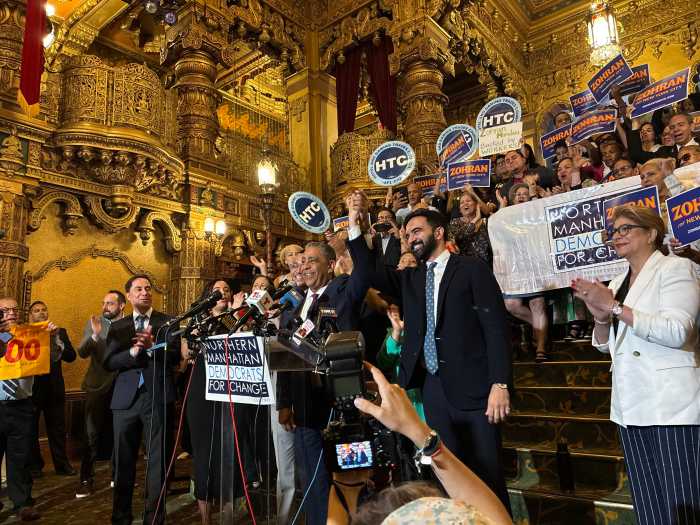A plethora of illegal curb cuts and other zoning and building code violations has local activists seeing red.
And they are equally frustrated by what appears to be the city’s inability to correct the illegal conditions, as became clear during a round table discussion hosted recently by Community Board 14, during which board members engaged in a give-and-take discussion with representatives of the mayor’s office, the Department of Buildings (DOB), the Department of City Planning (DCP), and the New York Police Department.
“You can go down any street you want,” contended CB 14 Secretary Joe Dweck, “and you know there are illegal curb cuts. This is a pandemic. The whole city is damaged. It’s deleterious to commerce, plus the fact that city streets have been destroyed. Wouldn’t it behoove us to have an enforcement team to go up the blocks and enforce?
“This needs more than a shovel,” Dweck added. “We need a backloader. We need big equipment.”
“I think this is something we understand,” remarked Charles Glover, the Brooklyn coordinator for the mayor’s Community Affairs unit. Noting that he had “pulled the 311 data” for the areas of Brooklyn he covers, Glover said, “you see that of the top three complaints, one is blocked driveways. I don’t think it’s a coincidence. It’s not a nice thing for the neighborhood if you delete green space and take away parking.”
A particular sore spot for board members was paved-over gardens that had been turned into parking pads illegally, sometimes without even cutting the curb.
In addition, members attending the meeting said they had repeatedly notified the city of problems without seeing any change in the conditions they reported.
“It’s a subject I’m involved with intensely,” noted Lawrence Hilonowitz. “I’ve reported many of these violations since 2004,” he went on, brandishing a stack of papers. Yet, he went on, the problems persist.
There was also concern expressed about the agency’s inability to check for such potentially dangerous violations as illegal conversions, because an inspector cannot go into a home about which a complaint has been made unless he or she is invited in, or unless there is sufficient cause to allow a warrant to be issued.
With respect to the curb cut issue, Ken Lazar, a community liaison for DOB, told board members that the agency is complaint-driven, only doing enforcement when an issue is brought to its attention.
He said that the board could do what other boards in the borough have done: Submit a list of addresses where illegal curb cuts are believed to exist. Armed with that list, Lazar went on, DOB inspectors could go out and check for the legality of curb cuts.
In addition, Lazar told board members gathered at the board office, 810 East 16th Street, that, while DOB can write successive violations for a condition that is not corrected, “Right now there is no process in place to have a curb cut restored. We can just continue to issue violations.”
And, he stressed, to issue a violation for an illegal parking pad, the inspector would actually have to see the vehicle parked there.
Yet, warned Glover, requesting increased enforcement is a “double-edged sword. “What can happen is that the people asking for the enforcement end up with a large number of tickets.”
After gathering information, board members present at the discussion discussed their response. For one thing, noted CB 14 Chairperson Alvin Berk, the board could advocate for changes in the law that would allow corrective action to be taken after a curb cut violation has been recorded, but not cured.
The board could also compile a list such as the one Lazar mentioned, he said. “My concern is to do it accurately,” Berk stressed. To that end, he said, one possibility would be to engage in a trial effort, with board members who volunteer canvassing a portion of the board area to identify possible violations.
In addition, Berk said, the board could see if there is some way to get the city to restore illegal curb cuts if the city does not, building on a remark by board member Kalman Yeger, who pointed out that the city’s Department of Transportation can repave a defective sidewalk and bill the property owner if he or she does not take remedial action within a certain time frame.
“I’d like you to check with the Law Department and find outwhat the distinction is between the city’s ability to correct sidewalk defects and the city’s ability to correct curb defects,” Berk said to Glover.
“Is there a boundary in the law?” he asked.























